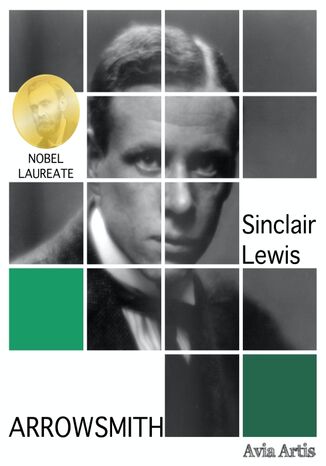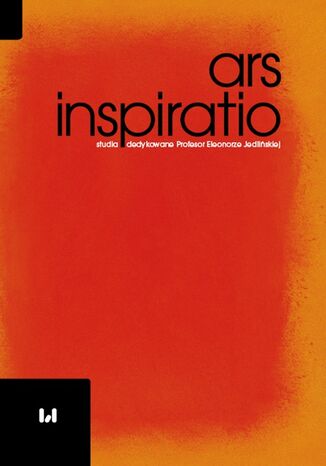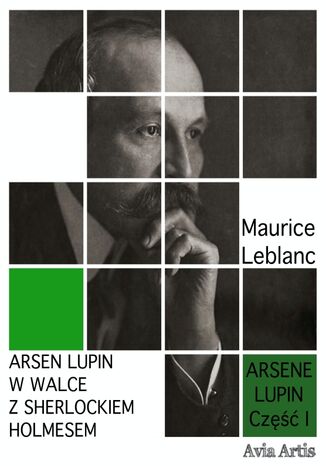Kategorie
Ebooki
-
Biznes i ekonomia
- Bitcoin
- Bizneswoman
- Coaching
- Controlling
- E-biznes
- Ekonomia
- Finanse
- Giełda i inwestycje
- Kompetencje osobiste
- Komputer w biurze
- Komunikacja i negocjacje
- Mała firma
- Marketing
- Motywacja
- Multimedialne szkolenia
- Nieruchomości
- Perswazja i NLP
- Podatki
- Polityka społeczna
- Poradniki
- Prezentacje
- Przywództwo
- Public Relation
- Raporty, analizy
- Sekret
- Social Media
- Sprzedaż
- Start-up
- Twoja kariera
- Zarządzanie
- Zarządzanie projektami
- Zasoby ludzkie (HR)
-
Dla dzieci
-
Dla młodzieży
-
Edukacja
-
Encyklopedie, słowniki
-
E-prasa
- Architektura i wnętrza
- BHP
- Biznes i Ekonomia
- Dom i ogród
- E-Biznes
- Ekonomia i finanse
- Ezoteryka
- Finanse
- Finanse osobiste
- Firma
- Fotografia
- Informatyka
- Kadry i płace
- Kobieca
- Komputery, Excel
- Księgowość
- Kultura i literatura
- Naukowe i akademickie
- Ochrona środowiska
- Opiniotwórcze
- Oświata
- Podatki
- Podróże
- Psychologia
- Religia
- Rolnictwo
- Rynek książki i prasy
- Transport i Spedycja
- Zdrowie i uroda
-
Historia
-
Informatyka
- Aplikacje biurowe
- Bazy danych
- Bioinformatyka
- Biznes IT
- CAD/CAM
- Digital Lifestyle
- DTP
- Elektronika
- Fotografia cyfrowa
- Grafika komputerowa
- Gry
- Hacking
- Hardware
- IT w ekonomii
- Pakiety naukowe
- Podręczniki szkolne
- Podstawy komputera
- Programowanie
- Programowanie mobilne
- Serwery internetowe
- Sieci komputerowe
- Start-up
- Systemy operacyjne
- Sztuczna inteligencja
- Technologia dla dzieci
- Webmasterstwo
-
Inne
-
Języki obce
-
Kultura i sztuka
-
Lektury szkolne
-
Literatura
- Antologie
- Ballada
- Biografie i autobiografie
- Dla dorosłych
- Dramat
- Dzienniki, pamiętniki, listy
- Epos, epopeja
- Esej
- Fantastyka i science-fiction
- Felietony
- Fikcja
- Humor, satyra
- Inne
- Klasyczna
- Kryminał
- Literatura faktu
- Literatura piękna
- Mity i legendy
- Nobliści
- Nowele
- Obyczajowa
- Okultyzm i magia
- Opowiadania
- Pamiętniki
- Podróże
- Poemat
- Poezja
- Polityka
- Popularnonaukowa
- Powieść
- Powieść historyczna
- Proza
- Przygodowa
- Publicystyka
- Reportaż
- Romans i literatura obyczajowa
- Sensacja
- Thriller, Horror
- Wywiady i wspomnienia
-
Nauki przyrodnicze
-
Nauki społeczne
-
Podręczniki szkolne
-
Popularnonaukowe i akademickie
- Archeologia
- Bibliotekoznawstwo
- Filmoznawstwo
- Filologia
- Filologia polska
- Filozofia
- Finanse i bankowość
- Geografia
- Gospodarka
- Handel. Gospodarka światowa
- Historia i archeologia
- Historia sztuki i architektury
- Kulturoznawstwo
- Lingwistyka
- Literaturoznawstwo
- Logistyka
- Matematyka
- Medycyna
- Nauki humanistyczne
- Pedagogika
- Pomoce naukowe
- Popularnonaukowa
- Pozostałe
- Psychologia
- Socjologia
- Teatrologia
- Teologia
- Teorie i nauki ekonomiczne
- Transport i spedycja
- Wychowanie fizyczne
- Zarządzanie i marketing
-
Poradniki
-
Poradniki do gier
-
Poradniki zawodowe i specjalistyczne
-
Prawo
- BHP
- Historia
- Kodeks drogowy. Prawo jazdy
- Nauki prawne
- Ochrona zdrowia
- Ogólne, kompendium wiedzy
- Podręczniki akademickie
- Pozostałe
- Prawo budowlane i lokalowe
- Prawo cywilne
- Prawo finansowe
- Prawo gospodarcze
- Prawo gospodarcze i handlowe
- Prawo karne
- Prawo karne. Przestępstwa karne. Kryminologia
- Prawo międzynarodowe
- Prawo międzynarodowe i zagraniczne
- Prawo ochrony zdrowia
- Prawo oświatowe
- Prawo podatkowe
- Prawo pracy i ubezpieczeń społecznych
- Prawo publiczne, konstytucyjne i administracyjne
- Prawo rodzinne i opiekuńcze
- Prawo rolne
- Prawo socjalne, prawo pracy
- Prawo Unii Europejskiej
- Przemysł
- Rolne i ochrona środowiska
- Słowniki i encyklopedie
- Zamówienia publiczne
- Zarządzanie
-
Przewodniki i podróże
- Afryka
- Albumy
- Ameryka Południowa
- Ameryka Środkowa i Północna
- Australia, Nowa Zelandia, Oceania
- Austria
- Azja
- Bałkany
- Bliski Wschód
- Bułgaria
- Chiny
- Chorwacja
- Czechy
- Dania
- Egipt
- Estonia
- Europa
- Francja
- Góry
- Grecja
- Hiszpania
- Holandia
- Islandia
- Litwa
- Łotwa
- Mapy, Plany miast, Atlasy
- Miniprzewodniki
- Niemcy
- Norwegia
- Podróże aktywne
- Polska
- Portugalia
- Pozostałe
- Przewodniki po hotelach i restauracjach
- Rosja
- Rumunia
- Słowacja
- Słowenia
- Szwajcaria
- Szwecja
- Świat
- Turcja
- Ukraina
- Węgry
- Wielka Brytania
- Włochy
-
Psychologia
- Filozofie życiowe
- Kompetencje psychospołeczne
- Komunikacja międzyludzka
- Mindfulness
- Ogólne
- Perswazja i NLP
- Psychologia akademicka
- Psychologia duszy i umysłu
- Psychologia pracy
- Relacje i związki
- Rodzicielstwo i psychologia dziecka
- Rozwiązywanie problemów
- Rozwój intelektualny
- Sekret
- Seksualność
- Uwodzenie
- Wygląd i wizerunek
- Życiowe filozofie
-
Religia
-
Sport, fitness, diety
-
Technika i mechanika
Audiobooki
-
Biznes i ekonomia
- Bitcoin
- Bizneswoman
- Coaching
- Controlling
- E-biznes
- Ekonomia
- Finanse
- Giełda i inwestycje
- Kompetencje osobiste
- Komunikacja i negocjacje
- Mała firma
- Marketing
- Motywacja
- Nieruchomości
- Perswazja i NLP
- Podatki
- Polityka społeczna
- Poradniki
- Prezentacje
- Przywództwo
- Public Relation
- Sekret
- Social Media
- Sprzedaż
- Start-up
- Twoja kariera
- Zarządzanie
- Zarządzanie projektami
- Zasoby ludzkie (HR)
-
Dla dzieci
-
Dla młodzieży
-
Edukacja
-
Encyklopedie, słowniki
-
E-prasa
-
Historia
-
Informatyka
-
Inne
-
Języki obce
-
Kultura i sztuka
-
Lektury szkolne
-
Literatura
- Antologie
- Ballada
- Biografie i autobiografie
- Dla dorosłych
- Dramat
- Dzienniki, pamiętniki, listy
- Epos, epopeja
- Esej
- Fantastyka i science-fiction
- Felietony
- Fikcja
- Humor, satyra
- Inne
- Klasyczna
- Kryminał
- Literatura faktu
- Literatura piękna
- Mity i legendy
- Nobliści
- Nowele
- Obyczajowa
- Okultyzm i magia
- Opowiadania
- Pamiętniki
- Podróże
- Poezja
- Polityka
- Popularnonaukowa
- Powieść
- Powieść historyczna
- Proza
- Przygodowa
- Publicystyka
- Reportaż
- Romans i literatura obyczajowa
- Sensacja
- Thriller, Horror
- Wywiady i wspomnienia
-
Nauki przyrodnicze
-
Nauki społeczne
-
Popularnonaukowe i akademickie
-
Poradniki
-
Poradniki zawodowe i specjalistyczne
-
Prawo
-
Przewodniki i podróże
-
Psychologia
- Filozofie życiowe
- Komunikacja międzyludzka
- Mindfulness
- Ogólne
- Perswazja i NLP
- Psychologia akademicka
- Psychologia duszy i umysłu
- Psychologia pracy
- Relacje i związki
- Rodzicielstwo i psychologia dziecka
- Rozwiązywanie problemów
- Rozwój intelektualny
- Sekret
- Seksualność
- Uwodzenie
- Wygląd i wizerunek
- Życiowe filozofie
-
Religia
-
Sport, fitness, diety
-
Technika i mechanika
Kursy video
-
Bazy danych
-
Big Data
-
Biznes, ekonomia i marketing
-
Cyberbezpieczeństwo
-
Data Science
-
DevOps
-
Dla dzieci
-
Elektronika
-
Grafika/Wideo/CAX
-
Gry
-
Microsoft Office
-
Narzędzia programistyczne
-
Programowanie
-
Rozwój osobisty
-
Sieci komputerowe
-
Systemy operacyjne
-
Testowanie oprogramowania
-
Urządzenia mobilne
-
UX/UI
-
Web development
-
Zarządzanie
Podcasty
“Arrowsmith” is a book by Sinclair Lewis an American writer. In 1930, he became the first writer from the United States to receive the Nobel Prize in Literature. “Arrowsmith” is a novel by Sinclair Lewis. It won the 1926 Pulitzer Prize (which Lewis declined). Arrowsmith tells the story of bright and scientifically minded Martin Arrowsmith of Elk Mills, Winnemac (the same fictional state in which several of Lewis's other novels are set), as he makes his way from a small town in the Midwest to the upper echelons of the scientific community at a prestigious foundation in New York City.
Ars inspiratio. Studia dedykowane Profesor Eleonorze Jedlińskiej
Aneta Pawłowska, Krzysztof Stefański, Magdalena Milerowska
Prezentowany zbiór studiów jest dedykowany Profesor Eleonorze Jedlińskiej, wybitnej historyczce sztuki, znakomitej nauczycielce i wieloletniej kierowniczce Katedry Historii Malarstwa i Rzeźby Uniwersytetu Łódzkiego. Książka odzwierciedla różnorodne nurty współczesnej humanistyki, ze szczególnym uwzględnieniem historii sztuki. Podzielona została na trzy części zatytułowane: SPOJRZENIE W PRZESZŁOŚĆ, W KRĘGU SZTUKI ŻYDOWSKIEJ oraz SZTUKA NOWA, SPOJRZENIE W PRZYSZŁOŚĆ. Problematyka ta konweniuje z badaniami Pani Profesor obejmującymi zagadnienia z zakresu teorii i metodologii historii sztuki, sztuki żydowskiej oraz sztuki wobec Zagłady. Teksty zawarte w tomie zainteresują nie tylko historyków sztuki, ale również kulturoznawców, filozofów, historyków i architektów.
Krzysztof Kamil Baczyński Juwenilia II Ars poetica Wiersz jest we mnie zły, obcy, zły i nienawistny, i pali moje noce gorejącym ogniem, idzie przeze mnie tłumny, rozkrzyczany sobą jak pochód ulicami niosący pochodnie. Wiersz jest zły, nienawistny, chce rozerwać formę (jak to ciężko zakuwać wolnego w kajdany), chociaż wydrę go z głębi palącego wnętrze, nigdy całkiem ... Krzysztof Kamil Baczyński Ur. 22 stycznia 1921 r. w Warszawie Zm. 4 sierpnia 1944 r. w Warszawie Najważniejsze dzieła: Pokolenie, Historia, Bez imienia, Dwie miłości, Z głową na karabinie Poeta, rysownik. Twórczość poetycką rozpoczął już jako uczeń gimnazjum im. Stefana Batorego w Warszawie, gdzie w 1939 r. zdał maturę. Związany ze środowiskiem młodzieży lewicowej, m.in. z organizacją Spartakus działającą półlegalnie w szkołach średnich. W czasie okupacji niemieckiej zbliżył się do ugrupowań socjalistycznych, wydających podziemne pisma Płomienie i Droga. Od 1943 r. uczestniczył w tajnych kompletach polonistycznych, w tymże roku wstąpił do Harcerskich Grup Szturmowych, które stały się zalążkiem batalionu AK Zośka oraz ukończył konspiracyjną szkołę podchorążych rezerwy. Uczestnik powstania warszawskiego; poległ w walce przy Placu Teatralnym (Pałac Blanka); w parę tygodni później zginęła w powstaniu żona poety Barbara, którą poślubił w 1942 r. Nie licząc dwóch zbiorków odbitych na hektografie w 7 egzemplarzach w 1940 r. i kilku wierszy w antologiach Pieśń niepodległa i Słowo prawdziwe, zdążył ogłosić, pod pseudonimem Jan Bugaj, dwa konspiracyjne zbiory: Wiersze wybrane (1942) i Arkusz poetycki (1944) wydane nakładem Drogi. W 2018 roku został pośmiertnie odznaczony Krzyżem Komandorskim Orderu Odrodzenia Polski. Kupując książkę wspierasz fundację Nowoczesna Polska, która propaguje ideę wolnej kultury. Wolne Lektury to biblioteka internetowa, rozwijana pod patronatem Ministerstwa Edukacji Narodowej. W jej zbiorach znajduje się kilka tysięcy utworów, w tym wiele lektur szkolnych zalecanych do użytku przez MEN, które trafiły już do domeny publicznej. Wszystkie dzieła są odpowiednio opracowane - opatrzone przypisami oraz motywami.
Arsen Lupin w walce z Sherlockiem Holmesem
Arsne Lupin kontra Herlock Sholmsto drugi zbiór opowiadań o Arsnie Lupin napisany przez Maurice'a Leblanc'a, zawierający dwie przygody w pojedynku rozumów między Lupinem a Herlockiem Sholmsem. Pierwsza historia, Blondynka, rozpoczyna się od zakupu antycznego biurka przez profesora matematyki. Biurko zostaje następnie skradzione, jak się okazuje, przez Arsne'a Lupina. Później, zarówno Lupin, jak i profesor zdają sobie sprawę, że los na loterię, pozostawiony przypadkowo na biurku, jest zwycięskim kuponem... Żydowska lampa to apel do Herlocka Sholmsa o pomoc w odzyskaniu żydowskiej lampy. Po przeczytaniu apelu Sholms jest zszokowany przeczytaniem drugiego listu, tym razem od Lupina i przychodzącego tego samego dnia pocztą, w którym ostrzega go, by nie interweniował. Sholms jest oburzony zuchwałością Lupina i postanawia wyjechać do Paryża. Na dworcu Gare du Nord Sholms zostaje zaczepiony przez młodą damę, która ponownie ostrzega go, by nie interweniował, i odkrywa, że Echo de France, gazeta Lupina, obwieszcza jego przybycie. Sholms przystępuje do śledztwa w sprawie zbrodni i odkrywa prawdziwy powód apelu Lupina o nieinterweniowanie...
Arsen Lupin w walce z Sherlockiem Holmesem
“Arsen Lupin w walce z Sherlockiem Holmesem” to pierwsza część serii książek Maurice’a Leblanca o przygodach Arsena Lupina, dżentelmena - włamywacza. “Arsen Lupin w walce z Sherlockiem Holmesem” zbiór dwóch opowiadań Maurice’a Leblanca opisujących przygody Arsène’a Lupina, w nawiązaniu do postaci Sherlocka Holmesa, bohatera kryminałów Conan Doyle'a.
Arsene Lupin. 12 Novels and Short Story Collections. MultiBook
Arsene Lupin is a fictional gentleman thief and master of disguise created by French writer Maurice Leblanc. Arsene Lupin is a literary descendant of Pierre Alexis Ponson du Terrails fictional character Rocambole. Like him, he is often a force for good, while operating on the wrong side of the law. Those whom Lupin defeats are worse villains than he is. The book includes the following works: The Extraordinary Adventures of Arsene Lupin, Gentleman Burglar; Arsene Lupin Versus Herlock Sholmes; The Hollow Needle; 813; The Crystal Stopper; The Confessions of Arsene Lupin; The Woman of Mystery; The Golden Triangle; The Secret of Sarek; The Teeth of The Tiger; The Eight Strokes of The Clock; Arsene Lupin. Based on Play by Maurice Leblanc and Francis De Croisset.
Arsene Lupin. 12 romans et recueils de nouvelles. MultiBook
Arsene Lupin est un personnage de fiction français créé par Maurice Leblanc. Ce gentleman cambrioleur est particulierement connu pour son talent user de déguisements et changer didentité pour commettre ses délits. Le livre comprend les ouvrages suivants: Arsene Lupin gentleman-cambrioleur; Arsene Lupin contre Herlock Sholmes; LAiguille creuse; 813; Le Bouchon de cristal; Les Confidences dArsene Lupin; LÉclat dobus; Le Triangle dOr; LÎle aux trente cercueils; Les Dents du tigre; Les Huit coups de lhorloge; La Comtesse de Cagliostro.
Arsene Lupin. 8 powieści i zbiorów opowiadań. MultiBook
Arsene Lupin (także Arseniusz Lupin) to dżentelmen włamywacz, bohater licznych powieści i opowiadań francuskiego pisarza Mauricea Leblanca. Jest mistrzem charakteryzacji. Potrafi znaleźć wyjście z każdej, nawet najbardziej beznadziejnej sytuacji. Żyje z kradzieży, ale jego ofiarami padają zawsze złoczyńcy. Działając poza prawem, wymierza im sprawiedliwość. W tomie znalazły się następujące powieści i zbiory opowiadań: Arsene Lupin, dżentelmen włamywacz, Arsene Lupin kontra Herlock Sholmes, Wydrążona iglica, Kryształowy korek, Zwierzenia Arsenea Lupin, Złoty trójkąt, Zęby tygrysa i Hrabina Cagliostro.








